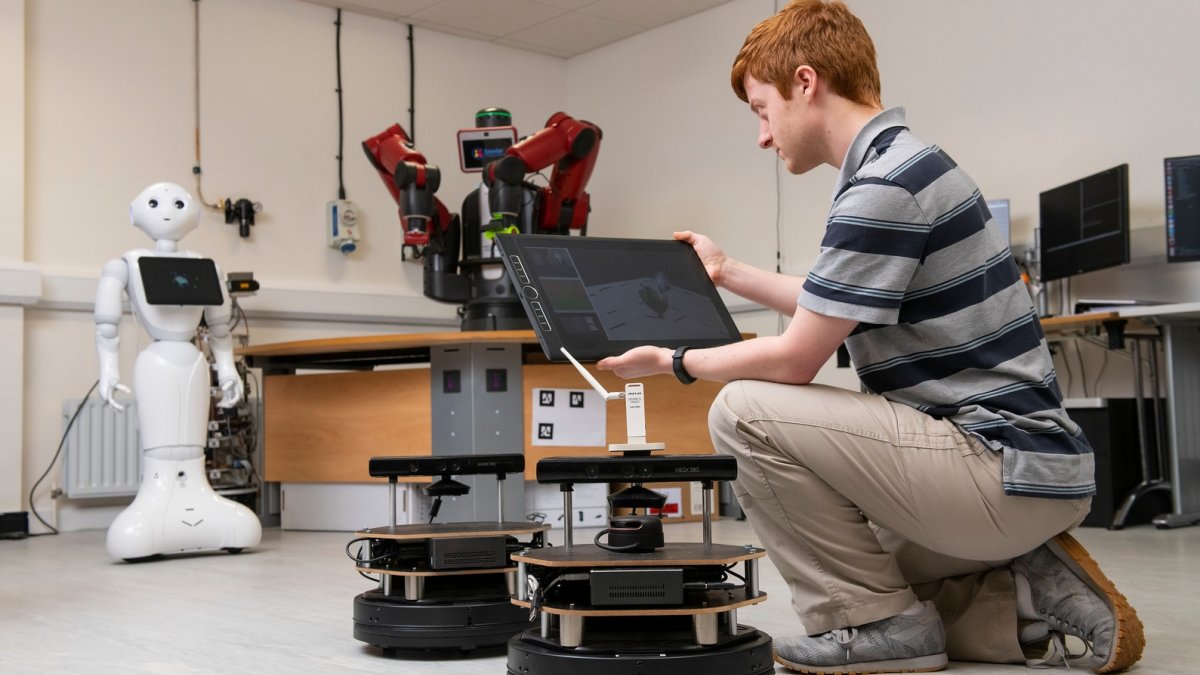Five reasons to study for a masters in electronic engineering at Surrey
What makes our MSc courses in electronic engineering different? Here are five reasons why studying with us can open the door to a world of opportunities.

1. Research-led teaching
You'll be taught in our large School of Computer Science and Electronic Engineering which puts you at the heart of a vibrant, exciting research community. The University is a pioneer in areas such as nanotechnology, 5G/6G communications, satellites, space engineering, artificial intelligence, robotics and machine learning, and this research feeds directly into our postgraduate teaching. A great example is the recently formed Institute for People-Centred Artificial Intelligence (AI) which has brought an exciting new range of modules - not only in AI but its application in business, law, health and even veterinary medicine.
2. Wide range of high quality modules
We offer 11 different MSc electronic engineering pathways and our courses were ranked top 10 in the UK in The Guardian University Guide 2023. You can choose from a huge range of modules on our Electronic Engineering MSc, or specialise on a course which feeds into a specific area of industry such as our Artificial Intelligence MSc, Computer Vision, Robotics and Machine Learning MSc, Space Engineering MSc, Nanotechnology and Renewable Energy MSc or 5G and Future Generation Communication Systems MSc.
3. Flexible study options
You can study for our masters courses full-time (one year) or part-time (two years), or you can choose to take our two-year MSc Electronic Engineering with a Professional Postgraduate Year, which combines taught modules with an extended project and the chance to do an industry placement or internship.
4. Professional recognition and employability
Our MSc courses are accredited by the Institution of Engineering and Technology and meet the academic requirements for registration as a Chartered Engineer, which makes them a great choice if you have a BEng or BSc degree qualification.
This professional recognition is a major factor in the employability of our graduates. Some go on to work for a wide range of well-known organisations including Airbus, Vodafone, Google, Samsung, Sky, European Space Agency and Microsoft, while others have met the challenge of key roles in small to medium enterprises. According to the Graduate Outcomes Survey 2022, 93 per cent of Surrey's postgraduate taught students are in work and/or full-time study after graduating, with an average starting salary of £33,469.
5. Work in a world-leading research centre
You’ll get the opportunity to carry out your own project within one of our world-leading research centres: the Institute for Communication Systems (home to our 5G/6G Innovation Centre, the UK’s largest academic centre for research into next generation communications); Centre for Vision, Speech and Signal Processing; Surrey Space Centre (which formed Surrey Satellite Technology Ltd); and Advanced Technology Institute.
Discover our masters courses in electronic engineering.